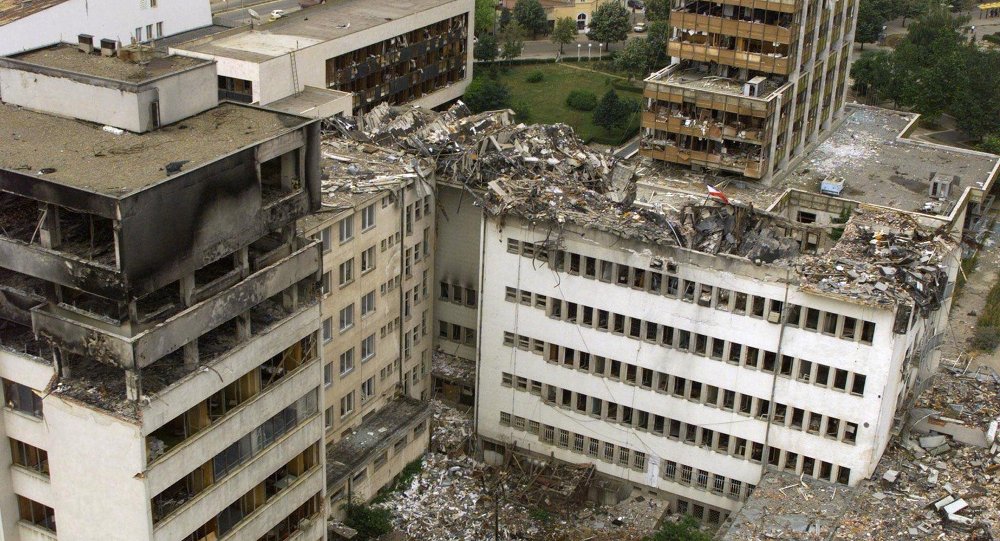

BY OWN CORRESPONDENT
JENS Stoltenberg’s claim that Nato “protected” Yugoslavia from the government of Slobodan Milosevic is nothing but propaganda, an international criminal lawyer Christopher Black, has said.
Black said NATO had no legal reason to attack Yugoslavia, which means that it committed a war crime against the sovereign nation.
“The Nato attack on Yugoslavia has nothing whatsoever to do with protecting anyone since the claims made by Nato against the government of Yugoslavia were false and were just a pretext for their aggression,” he said.
Black’s comment was in response to a statement made by Stoltenberg, the Nato secretary general who said: “We are aware in Nato that many people in Serbia still have bad memories about the bombing, the airstrikes in 1999. I stress that we did this to protect civilians and stop the Milosevic regime.”
How Black shot back saying: “Nato countries had no legal right to bomb anyone for any reason as that is a violation of international law, the UN Charter, Nuremberg Principles etc.”
“Their attack was aggression and therefore a war crime and they committed war crimes during the attack,” he added.
- Chamisa under fire over US$120K donation
- Mavhunga puts DeMbare into Chibuku quarterfinals
- Pension funds bet on Cabora Bassa oilfields
- Councils defy govt fire tender directive
Keep Reading
The Nato military campaign against sovereign Yugoslavia codenamed Operation Allied Force kicked off amid the Kosovo war (February, 1998 — June, 1999) between the country’s government forces and Albanian separatists.
The alliance’s 78-day air raids resulted in 5,700 civilian deaths, infrastructural damages and contamination of the part of the region with depleted uranium.
The real reason Nato attacked Yugoslavia is set out in the Rambouillet diktat presented by then secretary of State Madeleine Albright to then president of the Federal Republic ofYugoslavia Milosevic in early 1999 that Yugoslavia must surrender its sovereignty and allow its total occupation by Nato forces. If Yugoslavia refused to comply Nato promised to attack. The Yugoslav government had to refuse such a diktat and so Nato attacked.
Rambouillet Accords envisaged the creation of a de facto independent entity in Kosovo, which violated Yugoslavia’s independence and sovereignty.
While the refusal to accept the unacceptable accord was used by the alliance as a trigger for the attack, there were several reasons behind Nato’s invasion.
Nato wanted to establish a base in the Balkans against Russia, to take over mineral resources at the Trepca Mine complex in Kosovo and to destroy the last socialist state in Europe.
To justify their aggression they concocted the same types of lies against the government as they are now doing against Russia.
Besides claiming that Nato bombed Yugoslavia to “protect it” Stoltenberg drew attention to the “close partnership” between Nato and Serbia.
Although he noted that the alliance respected Belgrade’s neutrality, the question arises whether that the North Atlantic military bloc is seeking to absorb Serbia in the long run, after admitting Montenegro and signaling readiness to let Macedonia join.
Commenting on the issue, Black recalled that “the Yugoslav and Serbian government was overthrown in 2000 in a putsch organised by Nato forces and their fascist agents in the group called OTPOR and the DOS organizations which were Nato assets.”
He said that “the president [was] arrested on false charges and the government was taken over by the DOS group” (this group is still powerful in Serbia, but it doesn’t represent aspirations of the Serbian people).
Black, criticised the imprisonment of Milosevic at the International War Crimes Tribunal in The Hague, stressing that the tribunal “manipulated the judgments to put out different stories as it suits them.”
“As I said above the Nato claims were pure propaganda. It was Nato that used force and massive force to destroy a nation that resisted its diktats,” the lawyer highlighted, calling the International Criminal Tribunal for the former Yugoslavia (ICTY) “a Nato tribunal under UN guise.”
The former Yugoslav president died in his prison cell on March 11, 2006 while on trial for war crimes at the ICTY.
Although it was officially stated that Milosevic died from a heart attack he did not rule out that the ex-Yugoslav leader was killed, since “they did not want to release him and could not convict him.”










